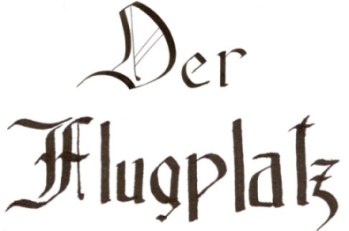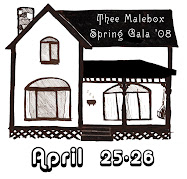This passage reminded me of Salinger, not because the writers are similar, but in Percy's description I saw any of Salinger's neurotic, affected characters:
The romantic sits across the aisle, slumped gracefully, one foot propped on the metal ledge. He is reading
The Charterhouse of Parma. His face is extraordinarily well-modeled and handsome but his head is too small and, arising as it does from the great collar of his car coat, it makes him look a bit dandy and dudish. Two things I am curious about. How does he sit? Immediately graceful and not aware of it or mediately graceful and aware of it? How does he read
The Charterhouse of Parma? Immediately as a man who is inthe world and who has an appetite for the book as he might have an appetite for peaches, or mediately as one who finds himself under the necessity of sticking himself into the world in a certain fashion, of slumping in a acceptable slump, of reading an acceptable book on an acceptable bus? Is he a romantic?
He is a romantic. His posture is the first clue: it is too good to be true, this distillation of all graceful slumps. To clinch matters, he catches sight of me and my book and goes into a spasm of recognition and shyness. To put him out of his misery, I go over and ask him how he likes his book. For a tenth of a second he eyes me to make sure I am not a homosexual; but he has already seen Kate with me and sees her now, lying asleep and marvelously high in the hip. (I have observed that it is no longer possible for one young man to speak unwarily to another not known to him, except in certain sections of the South and West, and certainly not with a book in his hand.) As for me, I have already identified him through his shyness. It is pure heterosexual shyness. He is no homosexual, but merely a romantic.
-And this is where it gets really good-
Now he closes his book and stares hard at it as if he would, by dint of staring alone, tear from it its soul in a word. "It's - very good," he says at last and blushes. The poor fellow. He has just begun to suffer from it, this miserable trick the romantic plays upon himself: of setting just beyond his reach the very thing he prizes. For he prizes just such a meeting, the chance meeting with a chance friend on a chance bus, a friend he can talk to, unburden himself of some of his terrible longings. Now having encountered such a one, me, the rare bus friend, of course he strikes himself dumb. It is a case for direct questioning.
He is a senior at a small college in northern Wisconsin where his father is bursar. His family is extremely proud of the educational progress of their children. Three sisters have assorted PhDs and MAs, piling up degrees on into the middle of life (he speaks in a rapid rehearsed way, a way he deems appropriate for our rare encounter, and when he is forced to use an ordinary word like "bus" - having no other way of conferring upon it a vintage flavor, he says it in quotes and with a wry expression). Upon completion of his second trimester and having enough credits to graduate, he has lit out for New Orleans to load bananas for a while and perhaps join the merchant marine. Smiling tensely, he strains forward and strikes himself dumb. For a while, he says. He means that he hopes to find himself a girl, the rarest of rare pieces, and live the life of Rudolfo on the balcony, sitting around on the floor and experiencing soul-communions. I have my doubts. In the first place, he will defeat himself, jump ten miles ahead of himself, scare the wits out of some girl with his great choking silences, want her so desperately that by his own peculiar logic he can't have her; or having her, jump another ten miles beyond both of them and end by fleeing to the islands where, propped at the rail of his ship in some rancid port, he will ponder his own loneliness.
In fact, there is nothing more to say to him. The best one can do is deflate the pressure a bit, the terrible romantic pressure, and leave him alone. He is a moviegoer, though of course he does not go to movies.





